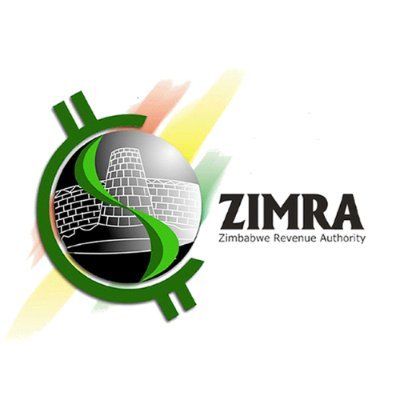About the Client
The Zimbabwe Revenue Authority (ZIMRA) is the governmental body entrusted with the critical task of collecting taxes and other revenue streams for Zimbabwe. Established under the Revenue Authority Act of 2002, ZIMRA’s mandate is comprehensive, encompassing revenue collection, trade, and travel facilitation, providing fiscal and economic advice to the government, and protecting civil society. ZIMRA is committed to becoming a beacon of excellence in fiscal services and facilitating trade and travel, which are crucial to Zimbabwe’s economic development.
Challenges
In alignment with its vision to mobilize revenue and foster sustainable compliance with fiscal laws, ZIMRA has been proactively involved in initiatives aimed at improving domestic taxation. One such initiative focused on sales data registration by retail traders and other businesses through fiscal devices and sales data controllers. However, several challenges emerged over time, highlighting the need for a new solution:
- Underutilized Data: Although data from fiscal devices was being collected, ZIMRA lacked the means to effectively utilize this data. This limitation hindered their ability to assess the quality of submissions and use the data for risk assessment and audit planning.
- High Costs of Fiscal Devices: The high acquisition costs of fiscal devices led to low adoption rates among taxpayers, thus impeding voluntary compliance initiatives.
- System Limitations: The existing system had reached its operational limits and was no longer capable of contributing significantly to ZIMRA’s vision or effectively reducing the Value Added Tax (VAT) gap in Zimbabwe.
Solution
To address these challenges, ZIMRA introduced the Fiscalisation Data Management System (FDMS) based on NRD Companies’ Virtual Fiscal Device Management System (VFDMS©), a comprehensive digital solution designed to enhance tax collection, enforce compliance, and encourage voluntary compliance. The FDMS is an integrated fiscalisation back-end solution that interfaces seamlessly with most of the existing and installed hardware fiscal devices at taxpayers’ points of sale. Additionally, the system introduces virtual fiscalisation solutions, capitalizing on digitalization opportunities.
The FDMS offers several key components:
- Central Platform: Facilitates the registration of taxpayers’ invoicing and Point of Sale (POS) solutions, managing the information collected by FDMS. This platform is essential for ZIMRA officers in their daily operations.
- FDMS API Gateway: Integrates taxpayers’ systems for submitting invoices, credit/debit notes, and other relevant data, ensuring the validation and consistency of the submitted information.
- Data Warehouse: Stores the collected information and provides data for ZIMRA’s risk and audit tools, enabling comprehensive analysis and oversight.
- Verification Portal: Allows buyers and auditors to verify the registration, validity, and consistency of invoices and submit complaints to ZIMRA if discrepancies are found.
- Self-Service Portal: Empowers vendors and suppliers of fiscal solutions to manage their invoicing information, review submitted invoices, and address errors identified by the system.
NRD Companies’ Solutions and Services
NRD Companies played a pivotal role in the successful implementation of FDMS by deploying and adapting its Virtual Fiscal Device Management System (VFDMS©) platform to meet the specific needs of Zimbabwe’s legislative and regulatory environment. The solution provided by NRD Companies includes all necessary FDMS components, along with additional functionalities such as invoice information reconciliation with the Automated System for Customs Data (ASYCUDA) and seamless integration with the new Tax and Revenue Management System (TaRMS), ZIMRA’s integrated Domestic Tax Management System. Additionally, the solution introduces inventory (stock) control layer, which provides ZIMRA with insights on the stock levels and stock movements of the taxpayers, and thus helps to prevent VAT fraud.
NRD Companies also contributed by:
- Providing complimentary Point-of-Sale solutions for Android and Windows environments, helping ZIMRA reach cost-sensitive taxpayer groups.
- Ensuring the solution supports additional tax types and adapting swiftly to new currency requirements.
- Offering technical consultations to major taxpayers regarding system integration scenarios and providing advice on the best integration options.
Expected Results
The implementation of the FDMS is expected to significantly increase taxpayer compliance by introducing Continuous Transaction Controls, reducing the risk of tax fraud and enhancing the detection of fraudulent activities. This, in turn, will contribute to a reduction in the VAT Tax Gap in Zimbabwe. The system is designed to support existing fiscal devices, ensuring a smooth transition with minimal disruption for taxpayers already using the old system.
The FDMS will bring substantial improvements to ZIMRA’s operations:
- Enhanced Data Quality: The system ensures higher data accuracy by providing robust controls and validations for the information submitted.
- Reduced Fraud Opportunities: By implementing data validations and consistency checks, the FDMS minimizes the potential for tax fraud and manipulation. It also introduces a Continuous Transaction Control approach to monitor goods movements across the country, supported by the solution’s Inventory module.
- Monitoring of Taxpayer Compliance: The system enables “liveness” monitoring of taxpayer points of sale, helping to identify and address non-compliant taxpayers.
- Improved System Security: Enhanced security measures will protect communications and ensure the authenticity of data transmissions.
- Comprehensive Data Monitoring: The FDMS helps monitor VAT taxpayer status and category thresholds, providing ZIMRA with critical oversight capabilities.
- POS Lifecycle Management: The system includes a POS register and lifecycle management feature with location information, allowing auditors to verify that the correct POS is deployed at the registered location.
- Timely Information Access: The availability of real-time data supports better insights and forecasting of VAT collection.
- Prioritization of Issues: The system categorizes receipt, invoice, and POS issues, enabling ZIMRA to prioritize and address key tasks more effectively.
For taxpayers, the FDMS will offer several key benefits:
- Improved Service Delivery: The self-service portal will enhance ZIMRA’s service delivery to taxpayers, approved suppliers, and manufacturers of fiscal devices.
- Invoice Verification: Taxpayers will be able to verify Fiscal Tax Invoices shortly after purchases using QR Codes or Authentication Codes via the Verification Portal.
- Increased Efficiency: The system will streamline the processing of VAT refunds and the verification of input tax claims, enabling faster and more efficient return assessments.
- Introduction of Virtual Fiscalisation: Virtual Fiscalisation Solutions will complement existing hardware fiscal devices, providing taxpayers with a variety of options to meet compliance requirements.
- Lower Compliance Costs: The use of Virtual Fiscalisation Solutions will help reduce compliance costs and support the growth of ICT businesses, fostering better business solutions for taxpayers.
- Increased Transparency: The FDMS will enhance transparency in dealing with Fiscal Tax Invoices, allowing taxpayers to verify invoices before claiming input tax.
Replicability
The Fiscalisation Data Management System (FDMS) implemented by ZIMRA is based on VFDMS© by NRD Companies – a scalable and adaptable solution that can be replicated in other regions facing similar challenges in tax compliance and data management. Its modular design allows for easy customization to fit different legislative and economic contexts, making it suitable for diverse fiscal environments. The system’s proven flexibility, ease of implementation, and potential for integration with existing tax management platforms make it a viable option for countries seeking to enhance their tax administration without major disruptions. The success of FDMS in Zimbabwe serves as a model for other nations aiming to improve revenue collection and reduce tax fraud.
SDGs Addressed

SDG 8: Decent Work and Economic Growth
FDMS plays a crucial role in fostering sustainable economic growth by improving tax collection and compliance. By reducing the VAT tax gap and increasing revenue collection efficiency, the system ensures that the government has more resources to invest in public services and infrastructure. This, in turn, creates a more conducive environment for economic growth and job creation. Furthermore, by reducing the cost of compliance through virtual fiscalisation solutions, the FDMS supports small and medium-sized enterprises (SMEs), enabling them to thrive and contribute to the economy.
SDG 9: Industry, Innovation, and Infrastructure
The FDMS introduces innovative solutions that modernize Zimbabwe’s tax administration infrastructure. The system’s virtual fiscalisation component is a prime example of how technology can be leveraged to streamline processes, reduce costs, and increase compliance. This innovation not only enhances the efficiency of tax administration but also promotes the growth of the ICT sector in Zimbabwe. By providing compliant sales and invoicing solutions at no cost, especially to cost-sensitive taxpayers, the FDMS supports the development of a robust digital infrastructure, which is critical for sustainable industrialization.
SDG 12: Responsible Consumption and Production
The FDMS contributes to responsible consumption and production by enforcing transparency in transactions. The verification portals and continuous monitoring help ensure that businesses report their sales accurately, reducing the likelihood of underreporting and promoting fair trade practices. This transparency supports responsible business operations and sustainable production practices.
SDG 16: Peace, Justice, and Strong Institutions
FDMS significantly contributes to SDG 16 by strengthening the transparency and accountability of tax administration in Zimbabwe. By improving data quality, reducing opportunities for tax fraud, and enhancing the efficiency of audit and verification processes, the system helps build stronger institutions. The availability of accurate and timely fiscal data allows ZIMRA to make informed decisions, enforce laws fairly, and maintain public trust in the tax system. Moreover, the self-service portal empowers taxpayers by providing them with tools to manage their compliance, further enhancing transparency and reducing the potential for disputes.
SDG 17: Partnerships for the Goals
The development and implementation of FDMS highlight the importance of partnerships in achieving sustainable development. The collaboration between ZIMRA and NRD Companies demonstrates how public-private partnerships can lead to the successful implementation of complex systems that address national challenges. This partnership model can be replicated in other countries, fostering international cooperation, and sharing best practices in tax administration.











